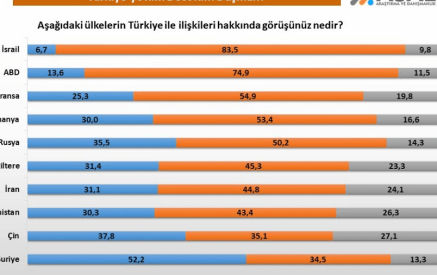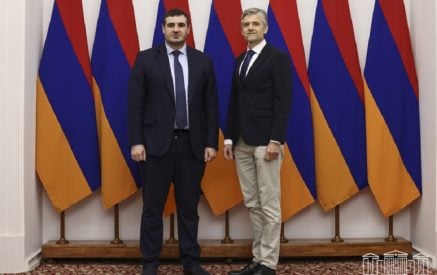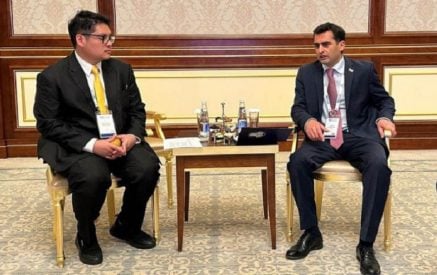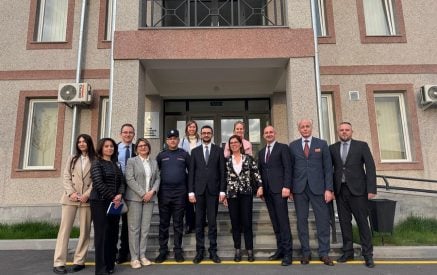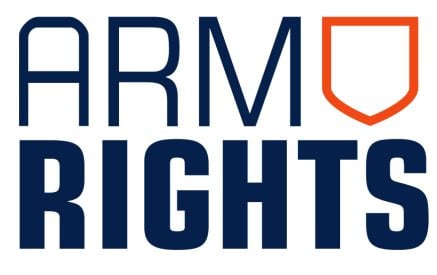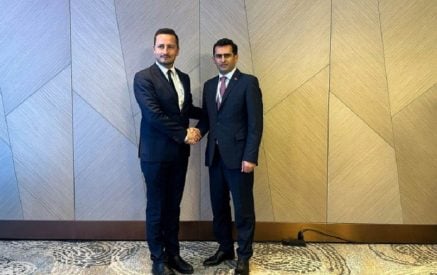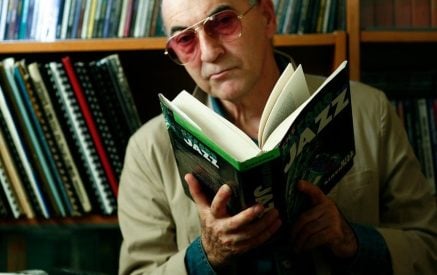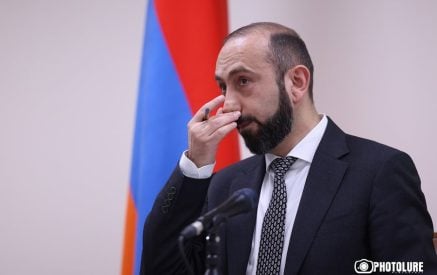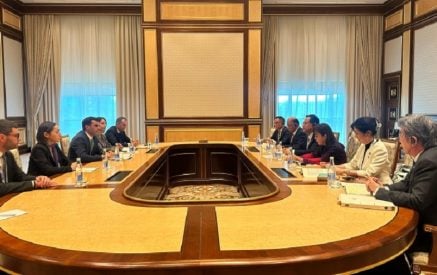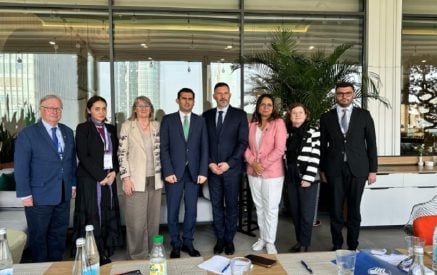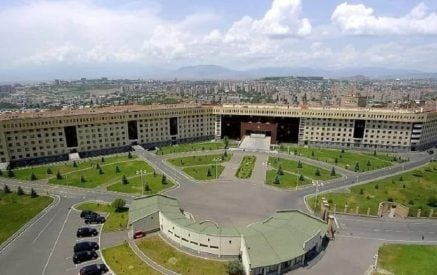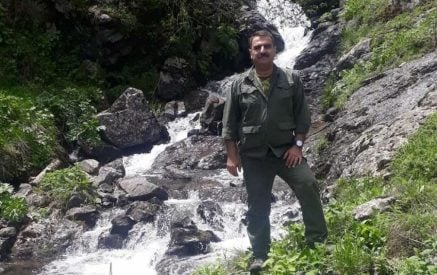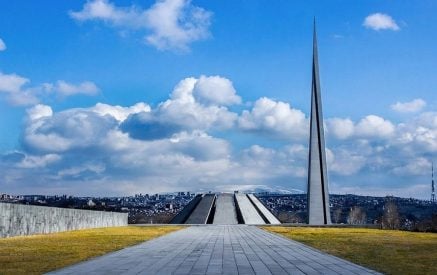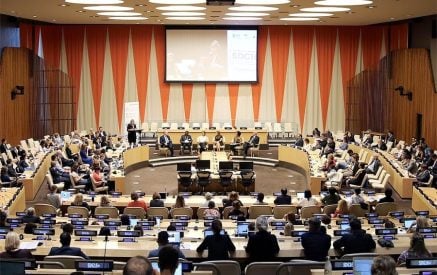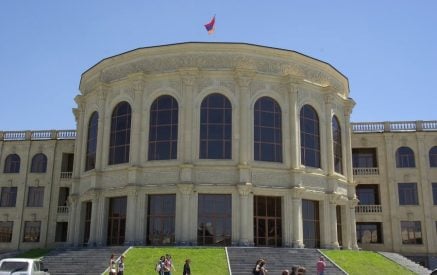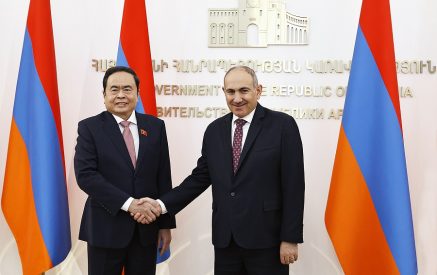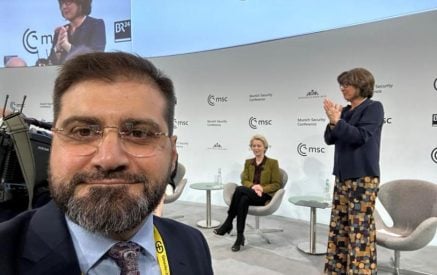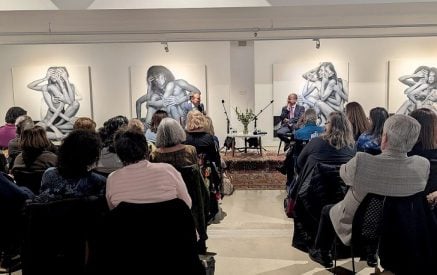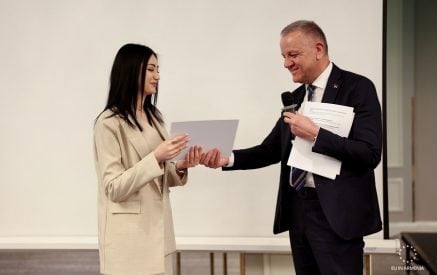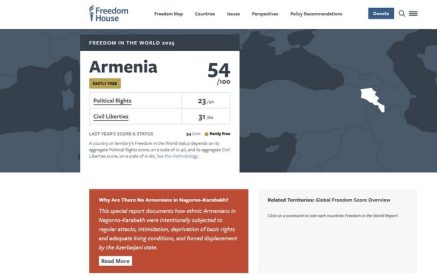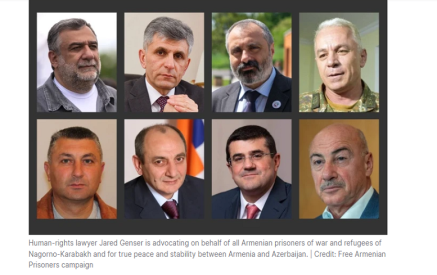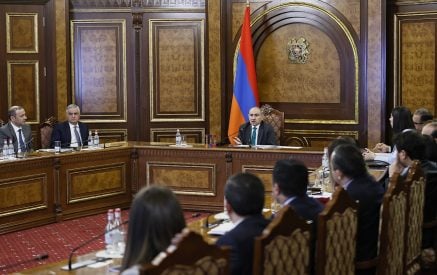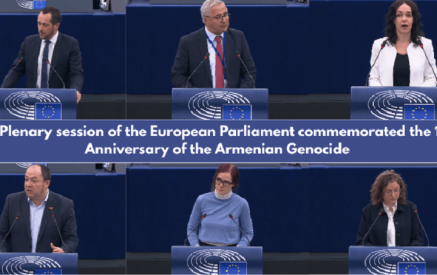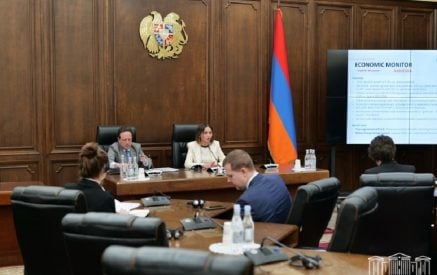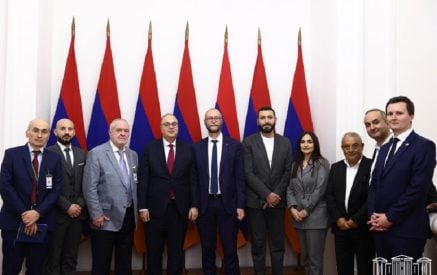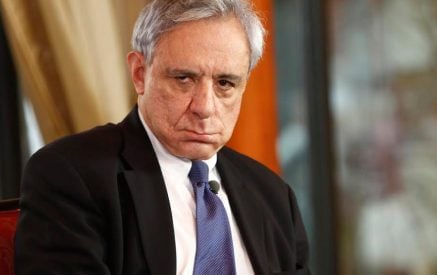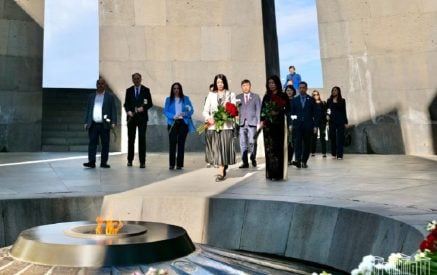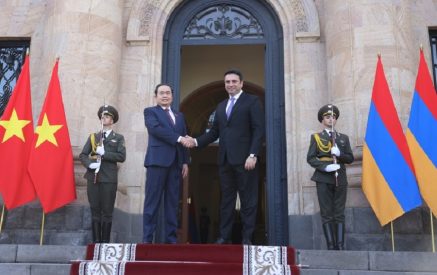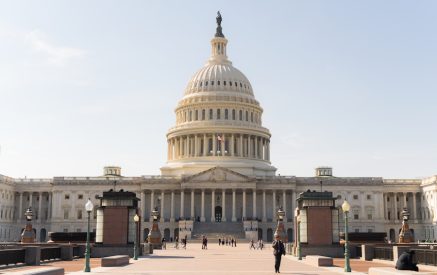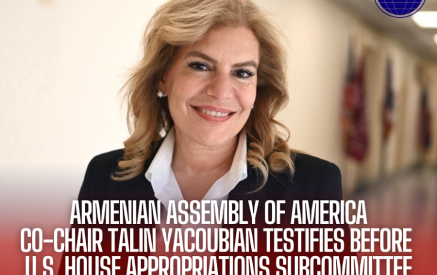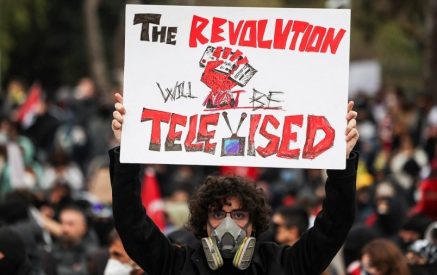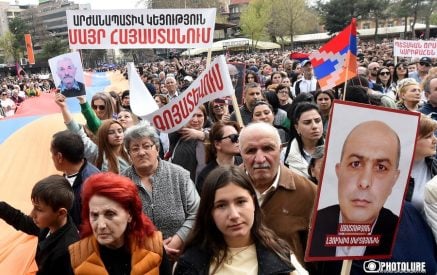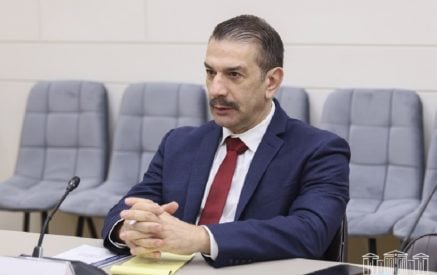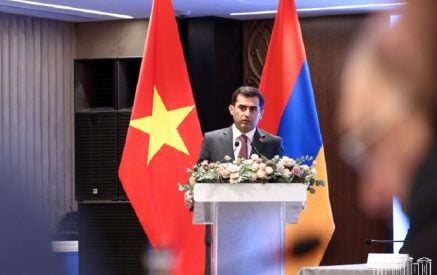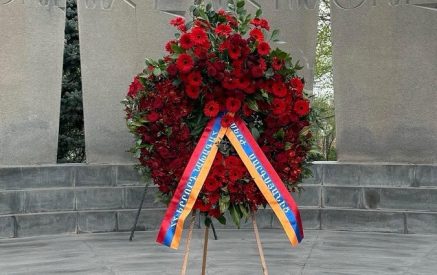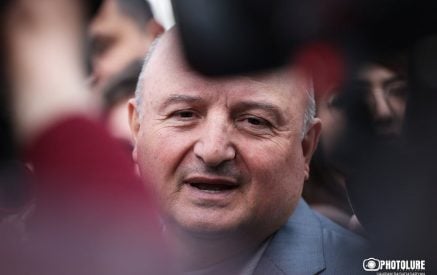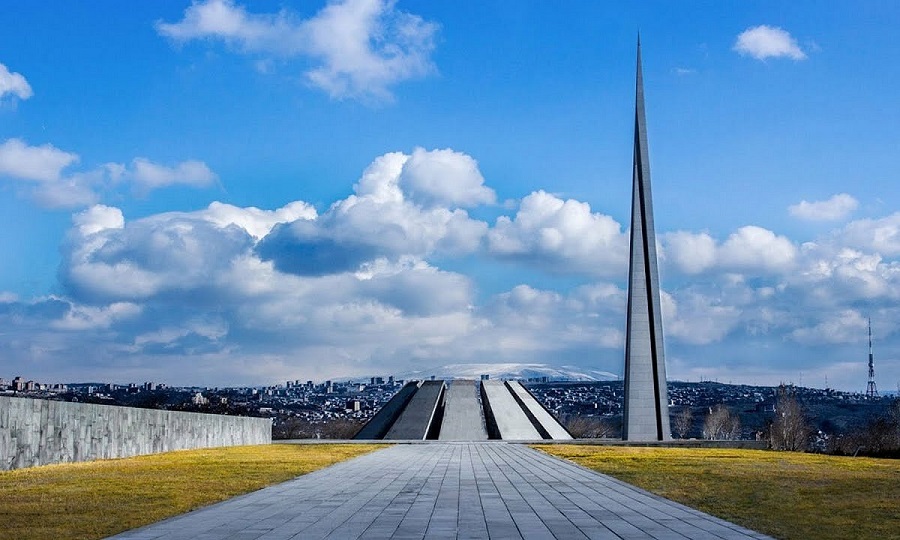Armenian Genocide Perpetrated by Turkiye (1915-1923)
and the Artsakh Genocide Perpetrated by Azerbaijan (2020-2023)
April 24, 2025, marks the 110th Anniversary of the Armenian Genocide. Although the planned-out process of the extermination of Ottoman Armenians started with the Hamidian massacres (1894-96), the ‘Final Solution’ was mercilessly unleashed in 1915 when the Turkish Ottoman Empire began a systematic campaign of deportation, rape, and extermination of the Armenian population of Eastern Turkiye. An estimated 1.5 million Armenians were killed alongside the Ottoman Greek and Assyrian populations. The Genocide eventually gave rise to the large Armenian Diaspora around the world today and is a painful memory that all Armenians carry. For the past 110 years, the Turkish government has refused to call the events in 1915 a ‘genocide’ and has since created a large-scale campaign to deny the Armenian Genocide. So far, only 34 countries, including the United States, France, Canada, Switzerland, Russia, and Germany, have recognized the Armenian Genocide. Help the Truth And Accountability League (TAAL) fight genocide denial by reading and sharing this statement.
Although virtually all Armenians had been killed or driven out of their ancestral homeland by 1923, a silent genocide continued. In the last 110 years, the Turkish government has erased almost all traces of Armenian presence in eastern Turkiye, which is western Armenia. A mass-scale campaign of cultural Genocide was implemented, and as a result, thousands of churches, monasteries, cemeteries, villages, and other monuments were demolished, and numerous cathedrals and Christian houses of worship were converted to mosques.
Denial is the Last Act of Genocide
Read also
Today, we can understand this 100-year-old Genocide thanks to the brave testimony of survivors, photographs documenting the atrocities, and the detailed historical record-keeping of upstanders committed to truth. The tragedy of the Armenian Genocide is an undeniable historical reality.
In this context, denial does not simply mean words of denial. Turkish leaders have used violence and threats to intimidate anyone speaking out about the Genocide. They have applied their geopolitical power to dissuade other countries from acknowledging the Genocide. They have published disinformation and harassed survivors and activists alike to silence calls for recognition and justice.
But despite the power and impact of Turkey’s denialism, the truth is actual. One hundred years after the Genocide, governments around the world – including the United States – have recognized the Genocide of the Armenians as what it was: a genocide.
The power of denial can only be countered by a commitment to truth. Because of brave activists, survivors, educators, and record-keepers, we know the truth about the Armenian Genocide.
Armenian Genocide Continues…
Despite the plan to annihilate the millennia-old Armenian nation, the Turkish government failed in its sinister machinations, and the Armenians survived through the intervention of humanitarian aid from countries around the world, including the US. This prompted the Turkish government to forge a deadly alliance against the descendants of the Armenian Genocide survivors in Armenia. Turkiye’s president Erdogan and Azerbaijan’s president Aliyev, whom Erdogan calls his little brother, proudly declare that Turkiye and Azerbaijan are one nation, two states.
Between September 2020 and September 2023, the state of Azerbaijan, with help from Turkiye, Russia, and Israel, committed the Artsakh Genocide. On September 27, 2020, Azerbaijan hired jihadist mercenaries from Syria, Libya, and Pakistan to invade the Republic of Artsakh, also known by its Soviet name, Nagorno-Karabakh.
Azerbaijan released the monstrous firepower of humanity’s latest, most sophisticated battlefield technology, including illegal and banned weapons supplied by Turkiye, Russia, and Israel, massacring 5,000+ indigenous Armenians and occupying 90% of Artsakh.
On November 9, 2020, Russia brokered a ceasefire agreement that Azerbaijan has broken many times since and made it null and void. Then Azerbaijan unleashed a violent and deadly campaign to terrorize Armenians into a forced exile from Artsakh. What was left of Artsakh was surrounded by the Azerbaijani military, who routinely fired and killed Armenians, invaded and burned their homes, subjugated them to starvation, and committed other crimes against humanity.
Azerbaijani Leaders Were Deliberately Inflicting Conditions
to Destroy Armenians in Whole or Part
Starting on December 12, 2022, Azerbaijan blockaded Artsakh in an attempt to force the Armenians to flee their native lands and take over the region. Aliyev’s government ordered a group of fake self-styled environmental activists to set up a roadblock on the Lachin corridor, the sole overland route linking the republic with Armenia. Many of these so-called activists were later revealed to be connected with the Azerbaijani government. In the next nine months, Azerbaijan attempted to starve Armenians and drive them out of Artsakh.
On September 19, Azerbaijan began bombardment of Artsakh and intentionally shelled civilian towns. In a September 5 report, ‘Risk Factors and Indicators of the Crime of Genocide in the Republic of Artsakh’, the Lemkin Institute for Genocide Prevention stated, ‘The total blockade of Artsakh civilians from access to the outside world led to the complete interruption of any imports through the Lachin Corridor. Russian peacekeepers and the International Committee of the Red Cross were also forbidden from providing external relief supplies. This left Artsakh’s 120,000 civilians—including approximately 30,000 children—with rapidly dwindling stocks of food, medicine, baby formula, and other indispensable supplies that could not be produced on the ground, rendering them vulnerable to illness and starvation.”
On February 22, 2023, the International Court of Justice (ICJ) ordered provisional measures to ensure that Azerbaijan ends the blockade of the Lachin Corridor. However, on April 23, 2023, Azerbaijani forces illegally installed a checkpoint in the Lachin Corridor at the Hakari Bridge.
Following Azerbaijan’s illegal, cruel, and inhumane blockade of Artsakh that deprived the region’s 120,000 civilians, including 30,000 children, of food, medicine, and other necessities for more than nine months, on September 19th Azerbaijan launched an unprovoked military offensive on Artsakh in an attempt to subjugate the region’s ethnically Armenian population by force. Following a 24-hour assault that saw the displacement of several thousand civilians and more than 200 deaths, Artsakh’s authorities chose to disarm to avoid further bloodshed. The remaining 120,000 Armenians fled to Armenia as refugees.
On November 17, 2023, the International Court of Justice ordered Azerbaijan to ensure the ‘safe and unimpeded’ return of individuals who left Artsakh after September 19, when Azerbaijan launched a massive attack on Artsakh, forcing the exodus of more than 120,000 Armenians from their homes. But Azerbaijan ignored this new demand from the ICJ, too.
There is a plausible and credible case to be made that the United States’ actions to facilitate the Azerbaijani military operation against the Armenian population in Artsakh, with the knowledge of Azerbaijan’s intention of ethnic cleansing and Genocide through killings, causing serious mental and physical harm, and creating conditions of life calculated to bring about its physical destruction in whole or in part, rise to the level of complicity in Genocide.
Presidents Trump and Biden waived Section 907 of the Freedom Act to give military aid to Azerbaijan and grant $100 million in foreign to Azerbaijan annually.
Azerbaijani Leaders Should Be Prosecuted
Under the Genocide Convention and Rome Statute
Azerbaijani leaders should be indicted for the crime of Genocide, and US leaders should be indicted for aiding and abetting Genocide.
The Convention on the Prevention and Punishment of the Crime of Genocide (the Genocide Convention) includes in the definition of Genocide the commission of any of the following acts when committed with the intent to destroy, in whole or in part, a national, ethnical, racial or religious group:
- Killing members of the group;
- Causing serious bodily or mental harm to members of the group;
- Deliberately inflicting on the group conditions of life calculated to bring about its physical destruction in whole or in part.
The Genocide Convention provides for both state responsibility and individual criminal responsibility. The International Court of Justice has jurisdiction to resolve disputes between states and order provisional measures during an unfolding genocide.
Crimes punishable under the Genocide Convention include Genocide, conspiracy to commit Genocide, incitement to commit Genocide, attempt to commit Genocide, and complicity in Genocide. Parties to the Genocide Convention — which includes Azerbaijan — are obligated to prevent and punish Genocide.
Moreover, the Rome Statute can be used by the International Criminal Court (ICC) to prosecute the crime of Genocide, which is defined the same way as in the Genocide Convention. The Rome Statute also provides for the prosecution of individuals who have aided and abetted the commission of Genocide. Although Azerbaijan is not a party to the Rome Statute, the ICC has determined that it has jurisdiction over crimes committed in Artsakh.
Azerbaijan Continues its Campaigns of Hate, Violence,
and Disinformation Against the Armenians
Azerbaijan has been using military and diplomatic coercion to achieve its maximalist, expansionist, and hegemonistic objectives about Armenia and Armenians. It also employs wide-ranging tools of hybrid war, such as historical revisionism, disinformation, lawfare, and cognitive warfare. To achieve its objectives, Azerbaijan has also been deceiving and harassing international actors. In particular, Baku has manipulated the concepts of territorial integrity, sovereignty, and non-intervention and exploited geopolitical dynamics, in particular, Russia’s war in Ukraine.
Azerbaijani Leaders Use Language of Genocidal Intent
Statements made by Azerbaijani leaders are evidence of an ‘intent to destroy, in whole or in part’ a ‘national group.’
Throughout the course of its decades-long authoritarian rule, the Aliyev regime has made Armenophobia part of Azerbaijani state policy. During the 20th century, Azerbaijan not only played a role in the Armenian Genocide perpetrated during the Turkish Ottoman Empire and then ethnically cleansed Armenians from the Nakhichevan region during the Soviet era but also began the process of eliminating Armenians from Artsakh and Armenia. This policy has included both physical aggression against Armenian civilians and the destruction of their cultural heritage, as well as rhetoric aimed at legitimizing racism, ethnic cleansing, and Genocide against Armenians in Artsakh, which is well-documented. This has intensified with support from the Erdogan regime in Turkey and jihadist mercenaries imported to aid the effort. This fact sheet includes only a selection of representative public quotes revealing genocidal intent and the establishment of a racist culture by top leaders:
‘Our goal is the complete elimination of Armenians. You, Nazis, already eliminated the Jews in the 1930s and 1940s, right? You should be able to understand us.’ 2005 remarks of Hajibala Abutalybov, the mayor of Baku, to a municipal delegation from Bavaria, Germany.
‘I am sure that there will come a time when our compatriots from Western Azerbaijan, their relatives, children, and grandchildren will return to our historical land, to Western Azerbaijan [Armenia]…Western Azerbaijan is our historical land, which is confirmed by several historical documents, historical maps and our history itself. Work should be done focused and based on a single concept and policy… And the primary objective is our return. Now, the Great Return Program for Karabakh is being implemented. Inshallah, there will come a time when we will develop a second Great Return Program.’ December 24, 2022, remarks of President Ilham Aliyev during a meeting with self-proclaimed representatives of so-called ‘Western Azerbaijan,’ an expansionist term for the Republic of Armenia, which is based on vicious historical falsification.
On January 10, 2023, President Aliyev told journalists that 2023 is ‘the last chance’ for Armenia because ‘2024 is coming, and Russia’s peacekeeping mission ends in 2025. They need to see a little further than their nose.’
In a September 19, 2022, Facebook post, which he later deleted, Tural Ganjaliyev, a member of the Azerbaijani parliament purporting to represent Stepanakert, wrote: ‘The Goycha-Zangazur Republic [encompassing the Armenian provinces of Syunik and Gegharkunik] will be a vital element in achieving a just peace and stability in the region. Long Live the Goycha-Zangazur Republic!’
On September 15, 2022, Turkish parliamentarian Mustafa Destici stated at a press conference in Turkey: ‘We say to the Armenian administration, make up your mind. I remind you once again that the Turkish nation has the power to erase Armenia from history and geography and that they stand at the limit of our patience.’
On August 12, 2022, President Aliyev stated during an interview on Azeri public television that ‘Armenians living in Karabakh will not have any status, independence or advantages.’
On June 22, 2022, President Aliyev stated: ‘If Armenia still clings to its old tactics in the demarcation process and tries to prolong it, it will regret it. We are closely watching the actions of revanchist forces in Armenia. Let them know that, too. My words are written at the top of that mountain: ‘The Iron Fist is in place; let no one forget about that.’
On August 16, 2021, President Aliyev made the following remark during an interview with CNN Turk: ‘Armenia’s new Minister of Defense made very reckless statements that if the Azerbaijani side trespassed Armenia’s border by one centimeter, then they would open fire. In other words, the Second Karabakh War has not been a lesson for everyone yet. If this is the case, then we are ready to teach them another lesson.’
On July 22, 2021, President Aliyev stated: ‘The Azerbaijani people are rightly unhappy to see statements … made in France and America to the effect that the conflict must be resolved. I am again telling them that I, the president of Azerbaijan, have already resolved that issue, period. There is no Nagorno-Karabakh.’
In a televised address on October 4, 2020, President Aliyev stated: ‘We are driving them away like dogs! Azerbaijani soldiers drive them away like dogs!’
In 2020, Nurlan Ibrahimov, the Public Relations Manager for the Qarabag FK Soccer Club, one of the most popular sports teams in Azerbaijan, made the following statement on social media: ‘We must kill all Armenians – children, women and the elderly. We need to kill them without making a distinction. No regrets. No compassion.’
On January 29, 2015, President Aliyev tweeted that ‘Armenia is not even a colony, it is not even worthy of being a servant.’
In 2004, Azerbaijani Defense Minister Safar Abiyev stated,’ Within the next 25 years, there will be no state of Armenia in the South Caucasus. These people have no right to live in this region. Modern Armenia was built on historical Azerbaijani lands. I think that in 25-30 years, its territory will again come under Azerbaijan’s jurisdiction.’
Recognizing the Armenian Genocide and Taking the Next Step
The United States has a long history of inaction on Genocide. If President Trump wants to change that narrative and live up to the principles of the U.N. Charter, then he will do what is right and hold Azerbaijan accountable.
For too long, Azerbaijan has acted with impunity — blockading Artsakh, committing Genocide against its people, occupying sovereign Armenian territory, and illegally imprisoning Artsakh leaders and POWs. The United States cannot disregard these crimes.
President Trump and Secretary Rubio have an opportunity to reverse this dangerous pattern by fully enforcing Section 907 of the Freedom Act, applying targeted Magnitsky sanctions, and championing the protected return of Artsakh’s Armenians to their rightful homeland by recognizing the Republic of Artsakh.
Recognizing the Armenian Genocide is crucial for acknowledging a horrific chapter of history, preventing future atrocities, and promoting justice and accountability for victims while also fostering international understanding and respect for human rights.
Acknowledging History and Preventing Repetition
Recognizing the Armenian Genocide, which has spanned 130 years and continues to ominously loom over the head of the Armenian nation in the remnants of its ancestral homeland, an ongoing Genocide that infamously reached its peaks in the systematic massacres and forced deportation of Armenians by the Ottoman Empire between 1915 and 1923, and the Artsakh Genocide by Azerbaijan between 2020 and 2023, is vital for acknowledging the historical reality of the event and preventing similar atrocities from happening again.
Promoting Justice and Accountability
Recognizing the Genocide as such and holding the perpetrators responsible is a step towards ensuring justice and accountability for the victims and their descendants, as well as for those who were responsible for the atrocities.
Fostering International Understanding and Respect
Recognizing the Armenian Genocide and holding the perpetrators accountable can contribute to a deeper understanding of the complexities of human rights issues and promote respect for human dignity and cultural diversity, both nationally and internationally.
Supporting Armenian Communities
Recognizing the Armenian Genocide and holding the perpetrators responsible can also provide moral and political support to Armenian communities worldwide, who continue to grapple with the trauma and consequences of the Genocide.
Countering Denial and Revisionism
Recognizing the Armenian Genocide and holding the perpetrators accountable is an essential step in countering denial and revisionism of the event, which can have a detrimental impact on historical accuracy and the ability to learn from the past.
Never Again? Really?
‘Never Again’ is a promise that was not kept to the Armenians as we watched in horror the resurrection of the Armenian Genocide in 2020 while the world was deafeningly silent. Unfortunately, Armenians’ enemies, Azerbaijan and Turkiye, are still actively planning and insidiously trying to carry out the complete annihilation of the Armenian people and the destruction of Armenia.
If we do not fully acknowledge, commemorate, educate, and hold perpetrators accountable, ‘never again’ will be just a meaningless slogan. History is being made now; let us stand on the right side of history before it’s written in stone.
About TAAL
TAAL is a 501©3 non-profit advocacy organization founded in 2020 due to a significant increase in anti-Armenian racism, defamation, hate crimes, and Armenophobia. We monitor and confront bias, disinformation, propaganda, and slander of the Armenian people and culture at the media level, including social media, academics, intelligentsia, and public policy.


